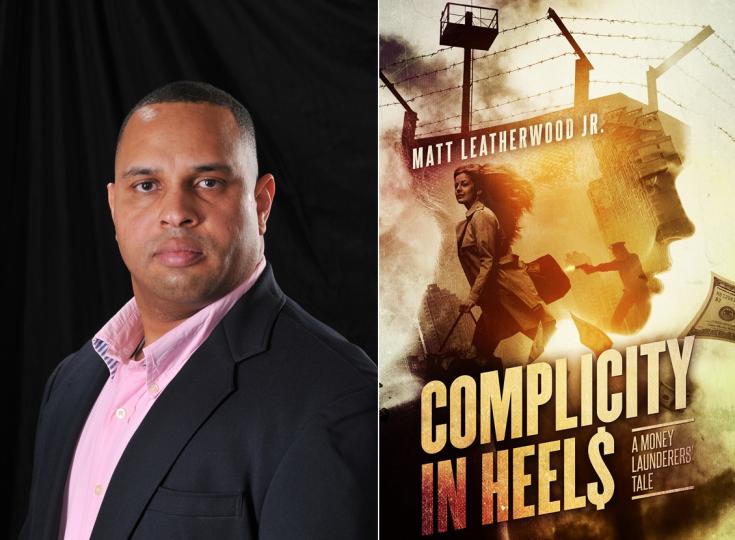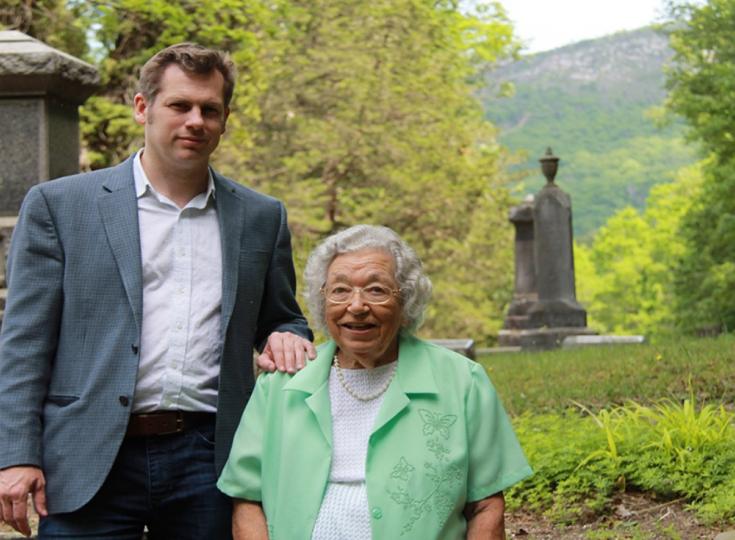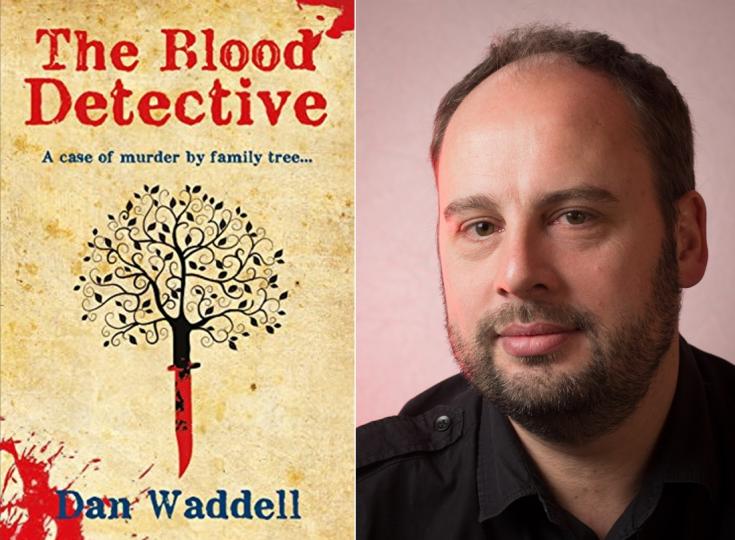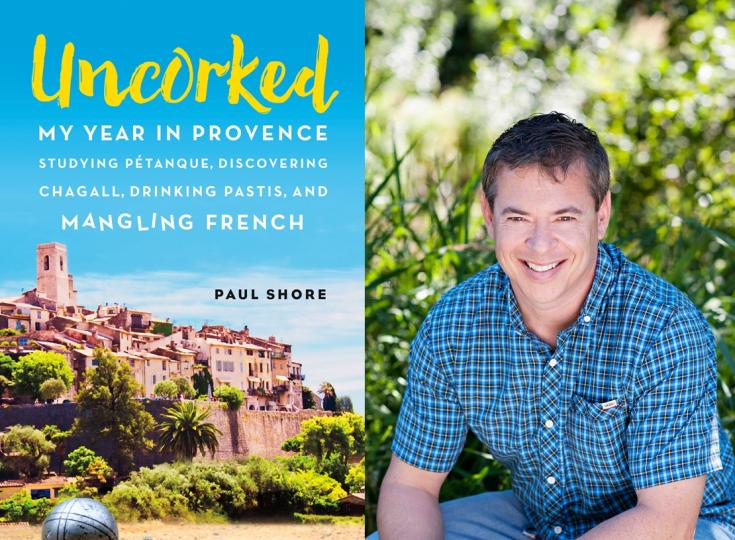Amy Weinland Daughters - Your Life Story Matters
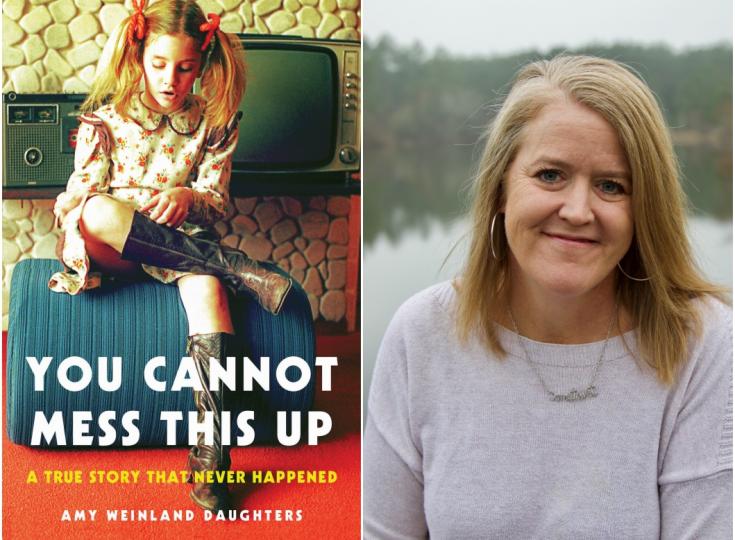
A native Houstonian and a graduate of The Texas Tech University, Amy W. Daughters has been a freelance writer for the past decade. Mostly covering college football and sometimes sharing her feelings, she currently writes a weekly column for FBSchedules.com. You Cannot Mess This Up: A True Story That Never Happened - released in June of 2019 - is her first published book. A competitive ribbon dancer, Amy recently relocated back to the Houston area. She is married to a computer person and is the proud mother of two sons. As our Author of the Day, she tells us all about her debut book, You Cannot Mess This Up.
Please give us a short introduction to what You Cannot Mess This Up is about.
Forty-six-year-old Amy Daughters (aka me in my adult form) flies home to Houston for Thanksgiving and is mysteriously hurled back through time. It’s 1978 and I’m forced to visit my childhood home, including my 10-year old self, my parents (who are now magically the same age as me) and my siblings for 36 hours. Are memories solid facts, or are they malleable depending on who is doing the remembering? Also, why are men’s pants so tight and who hid the tampons?
Tell us more about Amy Daughters. What makes her tick?
I am a 51-year old mother of two sons, a wife, a crappy runner, a hack golfer, an amateur historian and a freelance writer. You Cannot Mess This Up: A True Story That Never Happened is my debut book. After 12 years in Dayton, Ohio my family and I moved back to my hometown of Houston, Texas this past summer. I love sports and am especially passionate about college football. I believe love is the most powerful force on the planet.
What inspired you to make a 46-year old go back in time and be forced to re-experience her own childhood?
I have always loved history, retro anything and time travel. These passions sparked the original idea to write a book about me returning to 1978 as an adult. As a person who loves making other people laugh, my original intention was to write a hilarious trek back through time.
What I didn’t expect was the flood of feelings I’d be forced to contend with by reliving parts of my childhood for the second time, only now I’d be revisiting memories, in real time, as a full grown adult with children of my own and a much different perspective.
It resulted in me, with zero premeditation, writing a catharsis. The person I was coming into writing You Cannot Mess This Up was completely different than the person I was when I finished. This was compounded exponentially as I released the book into the world.
Your story also explores the effects of social media on today's world compared to 1978. Why did you find this important to do?
The complete absence of social media in 1978 versus its grip on our culture now was a theme I expected to encounter as I set out to write the story. What I didn’t fully understand, until I repeatedly imagined myself experiencing a major (though fictional) life event without technology, was the profound impact it – social media – had had on me personally.
How had the lack of social media contributed to my childhood and to my passage into adulthood? Did I see myself, and my journey, differently because I didn’t grow up with social media? Would social media alter the way I remembered my adult years vs. those I had without it? How much of my perceived intelligence was rooted in the fact I could look up virtually any kernel of knowledge on my phone in under 20 seconds?
Many people say this book filled them with nostalgia. Was this your intention?
Absolutely! The main things I want the reader to get from reading You Cannot Mess This Up are (1). To be Entertained and to feel a strong sense of Nostalgia – I want them to find it funny, very funny. I also want them to enjoy the trip through time, even if they didn’t grow up in the 1970s, but especially so if they did.
(2). That they’ve had a unique experience – I want them to put themselves in the main characters’ shoes and time travel back to their own childhoods. Does what they remember line up with what they would now see - as an adult with life experience - as “reality?” What would they discover in the bowels of their own emotional basements? What questions do they have that they may be afraid to answer?
(3). Inspired – I want them to compare their story with mine, which is quite unextraordinary in relative terms, and be inspired to share their stuff because it IS profound and DOES matter. Because it is a human life and it is THEIRS. I want them to have the courage to be honest, even though what they have to say won’t likely be celebrated on Good Morning America, or Ellen, or even receive 100-plus likes on Facebook.
Besides writing, do you have any other secret skills?
I have ribbon sticks and I’m not afraid to dance with them.
Why did you title this book: "You Cannot Mess This Up. A True Story That Never Happened"?
The working title for the book was “Thanksgiving 1978: A True Story That Never Happened.” That morphed into “The Bowels of My Emotional Basement,” which is one of my favorite lines from the book and is, humorously, the title that was in place when I inked the contract on the book.
My publisher rightly asserted that this title was a little “dark” and misleading and we settled on “You Cannot Mess This Up.” It is also a key line from the story, a major component of my time travel guide’s instructions when I first arrive in 1978. It also represents a larger theme that is quite relatable.
I am pleased that “A True Story That Never Happened” made it from the starter’s block to the finish line and is on the cover of each book. In one line it sums up the book in burrito form – a true-story memoir wrapped up in a fictional time travel tortilla.
This is your debut novel. What has the experience been like, so far?
Overall, and despite the very real bumps in the road along the way, it’s been completely surreal. I have dreamed of writing a book since I was a little girl, but it always felt like a pipe dream. Then, there were the countless hours I spent writing the first draft, then rewriting it and then going through endless edits. All the while, it seemed futile. I never seriously believed it would get published.
When I received the box of Advanced Reader Copies, opened it, and held an actual book with my name on the cover in my hands, it was magical. It was one of the most overwhelming moments of my entire life.
What advice would you give to your younger self?
(1). Enjoy every moment of being skinny, from now until 50, because when you look back at pictures of yourself that’s exactly what you’re going to be. (2). Don’t waste your hotness - go with it. (3). Though you’ll never achieve it completely, attempt – on every single occasion you can - to be confident enough to conduct your emotional affairs unapologetically. (4). Take golf lessons, now. (5). Never, EVER get a perm. (6). Looking back is a lot more satisfying when you left everything you had on the table.
Do you have a favorite line from the book, and can you explain what that line means to you?
Most of my favorite lines from the book are the stuff I still find hilarious. It’s a high bar as I’ve been through the text word-for-word countless times, to the degree that sometimes I never want to see it again.
If I had to pick a favorite line that wasn’t humorous, it would be the final three sentences of the following paragraph from Chapter 26. Big Amy wants to leave Little Amy (her younger self) an inspirational note before she returns to 2014 but can’t decide on what to say.
“What could I possibly say anyway? Really, there were no great words that were going to gently guide her until she hit the magic age of twenty or twenty-five, when things would even out and she would begin to discover that she actually was well and fully OK. Perhaps the note was nothing more than a futile idea, designed more to make me feel better in 2014, than for her to grapple with in 1978. For all I knew, she didn’t consider what she was doing as grappling, or struggling. She was just living and this was the only life she knew. All my misplaced words could do was to paint a complicated forty-five-year-old picture of what to her was a simple ten-year-old paint-by-number. I would think my canvas was a masterpiece. She would look at it and never be able to sleep again.”
What did you have the most fun with when writing this book?
Without a doubt, it was the research. I spent countless hours thumbing through Sears catalogs, reading magazines, watching vintage videos on YouTube and scrolling through images on Google. I also spent about a week in the main Houston library, reading all the newspapers from Thanksgiving week 1978 and pouring through reels of microfiche.
Rather than a tedious task, this was all pure joy. I reveled in every moment of it. The only difficulty was the process of whittling down what to use, and what to discard, in what became the final edition of the book.
Do you have any interesting writing habits? What is an average writing day like for you?
I generally start my day by writing about college football for a couple of hours. It’s my favorite thing to write about it and I don’t usually have a problem getting immersed in it. It’s also a perfect pathway to confidently diving into whatever else I’m working on, sometimes that’s freelance work but now it’s mostly my second book project.
What are you working on right now?
I am currently rewriting my next book, “Dear Dana: That time I went crazy and wrote a letter to all 581 of my Facebook friends.” It details an extraordinary journey I went on from 2014-17. It all started when I reconnected – on Facebook – with a friend I had met 30 years ago and hadn’t interacted with since. Tragically, her 15-year old son passed away after battling cancer and we – without any forethought – struck up an in-writing pen pal relationship that changed the way I saw everything in my life.
Awestruck by how much this relationship – with someone who was “just a Facebook friend” had impacted me I wondered – crazily – what would happen if I wrote ALL of my almost 600 friends a handwritten letter?
The book details this in-writing adventure where not only do I actually write all the letters, I ultimately learn a series of life-changing lessons. Among these, that we all fit deliberately and beautifully into the narrative of one another’s life stories whether we share the same beliefs or lifestyles or political views or not.
Where can our readers discover more of your work or interact with you?
I write a weekly column about college football that can be found on FBschedules.com. To interact with me, check out my author page on Facebook, my Instagram and my website www.amydaughters.com.
